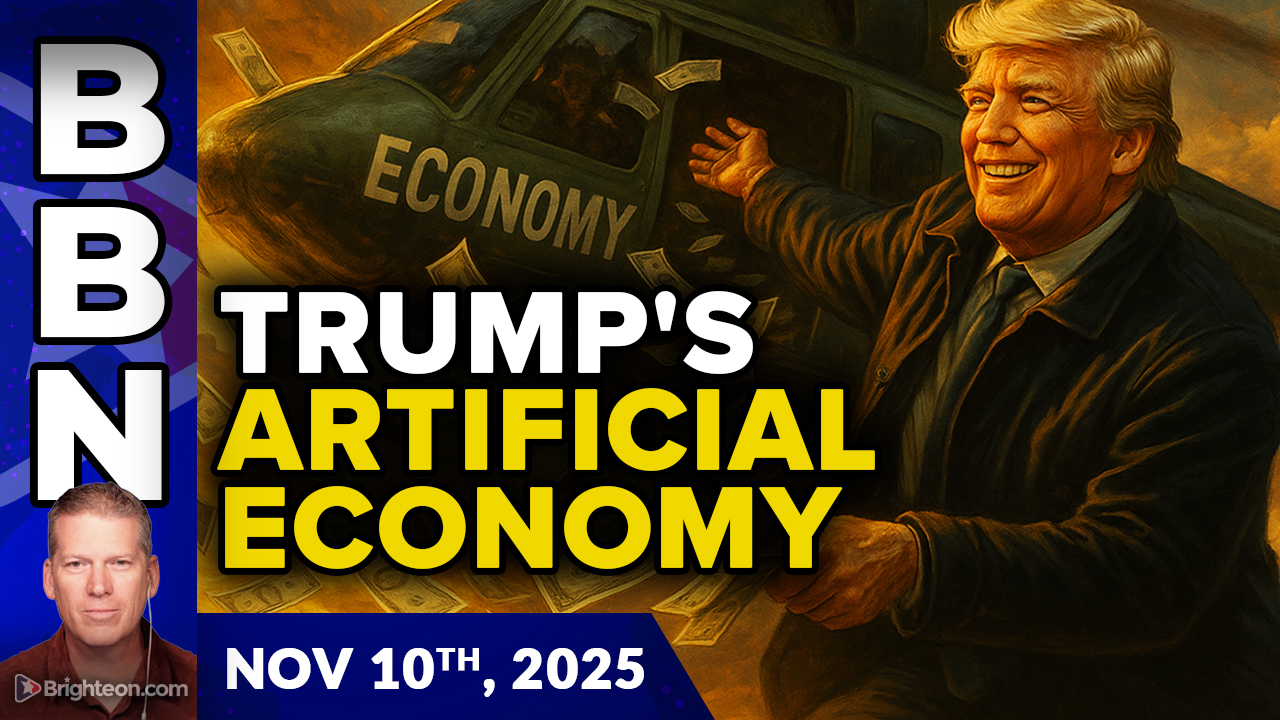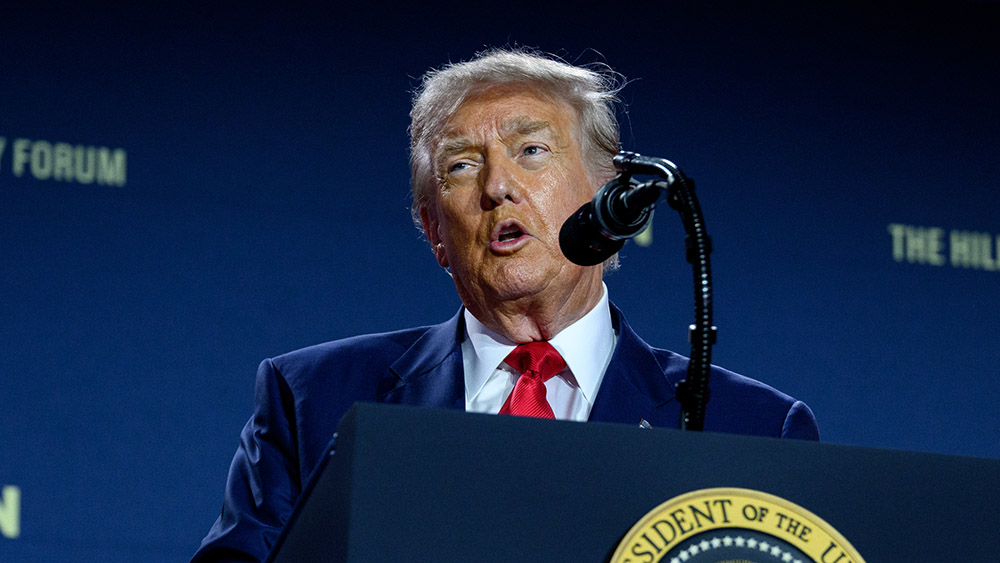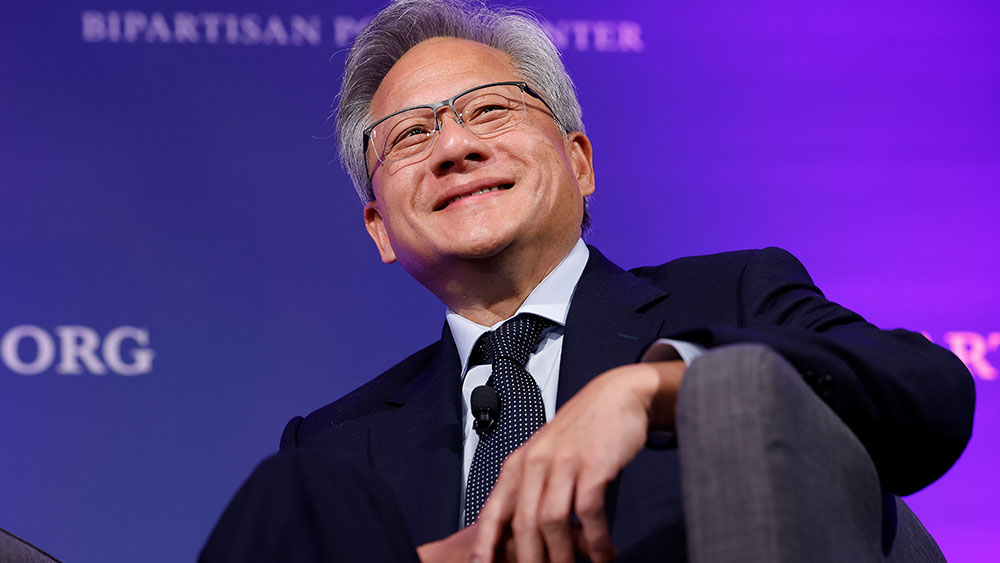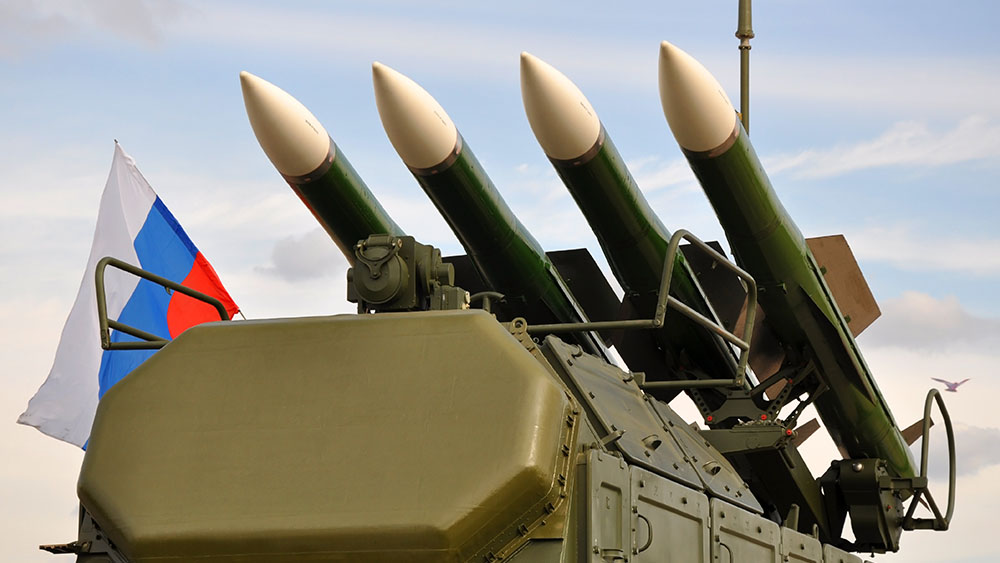China’s rare earth DOMINANCE threatens U.S. prosperity
11/08/2025 / By Lance D Johnson

Imagine a world where the technology that powers your phone, the medical devices that save lives, and the defense systems that protect a nation could be switched off by a foreign power with the stroke of a pen. This is the precarious reality the United States faces due to its deep and dangerous dependency on China for rare earth elements. A recent truce between the two superpowers offers little comfort, as the fine print reveals a web of confusion and conflicting claims, exposing just how vulnerable America has become. How did the land of innovation and self-reliance become so beholden to a communist country for the very minerals that fuel its future?
Key points:
- A newly announced U.S.-China deal on rare earth exports is already mired in discrepancies, with Washington and Beijing offering different interpretations of the terms.
- China refines over 90 percent of the world’s rare earths, a near-monopoly it has not hesitated to use as a geopolitical weapon in the past.
- Despite U.S. efforts to find alternative sources, analysts warn that breaking free from Chinese supply chains is a process that will take years, leaving America exposed.
- The U.S. has expanded its critical minerals list to include uranium and silver, a clear signal of escalating concern over resource security.
A deal built on shifting sand
Following discussions in London, the world was told a deal was struck. On June 11, U.S. and Chinese negotiators agreed that Beijing would resume regular exports of rare earths to America, albeit under temporary licenses. President Trump announced on Truth Social that the agreement was “done.” Yet, the foundation of this agreement appears to be made of sand. While the White House asserts that China will “effectively eliminate” its current export controls, Chinese industry authorities and financial news outlets confirm that the restrictive regulations implemented in April remain firmly in effect. This is not a simple misunderstanding; it is a fundamental disagreement over the very nature of the truce.
Is this a genuine de-escalation, or is it a tactical pause designed to keep America complacent while its technological lifeline remains in the hands of a strategic rival?
To understand the gravity of this situation, one must look back two decades. The United States was once self-sufficient in processing these 17 metallic minerals. That capability was systematically dismantled. As domestic plants shuttered, with the last one in Indiana closing in the early 2000s, China flooded the global market with cheap exports. This was a classic economic siege, undercutting competitors until they collapsed, paving the way for China’s current near-monopoly status. Today, Beijing refines over 90 percent of the global supply of these elements, which are the lifeblood of modern technology, found in everything from AI and drones to medical devices and renewable energy systems.
A weaponized supply chain
What happens when a monopoly decides to flex its muscles? The world has seen this movie before. In 2010, during a territorial dispute with Japan, China abruptly halted rare-earth exports, crippling Japanese manufacturing. Although a formal legal framework was not fully in place at the time, Beijing exerted immense pressure through procedural delays at customs. This playbook is now a permanent feature of geopolitical strategy. The recent trade friction provides a chilling preview. Exports of crucial rare-earth magnets to the U.S. plummeted by 59 percent in April and nearly halted completely in May, falling 93 percent year-on-year. The ripple effect was immediate and severe, forcing companies like Ford Motor to temporarily suspend operations at some U.S. plants. This is economic warfare, and the U.S. industrial base is on the front line.
Recognizing the dire threat, the U.S. has initiated a multi-pronged response. The Trump administration is actively seeking deals with nations like Ukraine and African countries to secure alternative sources. In a significant move, the U.S. Geological Survey has added uranium, silver, and copper to its list of critical minerals, broadening the scope of commodities deemed vital to national security. This list informs everything from tax incentives for domestic processing to potential tariffs on foreign imports. However, the path to independence is long and fraught with obstacles. Building a domestic supply chain from the ground up is a monumental task that involves not just mining, but also the complex, often environmentally challenging refining processes that China now dominates. The question is whether America can move fast enough before the next crisis hits.
Sources include:
Submit a correction >>
Tagged Under:
Bubble, China, Collapse, critical minerals, defense, dependency, economy, exports, geopolitics, manufacturing, market crash, metals, monopoly, national security, rare earths, risk, silver, supply chain, technology, trade, Trump, uranium, US
This article may contain statements that reflect the opinion of the author
RECENT NEWS & ARTICLES
COPYRIGHT © 2017 COLLAPSE.NEWS
All content posted on this site is protected under Free Speech. Collapse.news is not responsible for content written by contributing authors. The information on this site is provided for educational and entertainment purposes only. It is not intended as a substitute for professional advice of any kind. Collapse.news assumes no responsibility for the use or misuse of this material. All trademarks, registered trademarks and service marks mentioned on this site are the property of their respective owners.





















